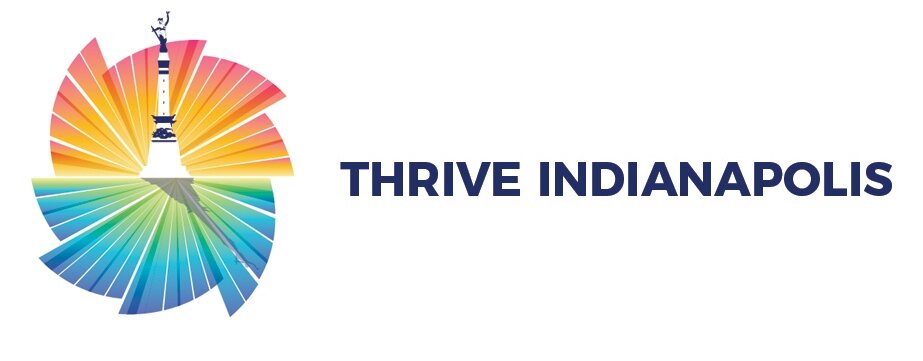RELEASE: Congressman Carson, Mayor Hogsett announce $15 million for EV charging stations in minority, disadvantaged neighborhoods
Congressman Carson, Mayor Hogsett announce $15 million for EV charging stations in minority, disadvantaged neighborhoods
INDIANAPOLIS—Today, Congressman André Carson (IN-07) and Mayor Joe Hogsett announced a $15 million grant to deploy Electric Vehicle (EV) charging stations in Indianapolis.
This project will prioritize fair and equitable placement to fill gaps left in the Indiana Department of Transportation Electric Vehicle Infrastructure Plan, which failed to adequately include urban and underserved communities like those in Indianapolis. It also failed to provide quantifiable inclusion of minority and disadvantaged businesses. Congressman Carson first outlined these concerns in a 2022 letter and has since worked with local partners to advocate for more equitable distribution of EV infrastructure and was determined to support local efforts in the application for this grant.
Electric vehicles could make up as much as nearly half of global car sales by 2035. In 2022, Congressman Carson voted for the Inflation Reduction Act, which included consumer tax breaks for EVs, including a $7,500 tax break for purchasing a new EV. On average, EVs can save consumers $800 - $1,000 annually on gasoline. Battery EVs are about 40% less costly to maintain.
Roughly one-third of Indianapolis’s citywide greenhouse gas emissions comes from the transportation sector, making the transition to more electric vehicles a part of the pathway to reducing pollution, improving regional air quality and public health, and achieving carbon neutrality by 2050 - as outlined in Thrive Indianapolis, the city’s sustainability and resilience action plan.
“Throughout history, major American infrastructure projects -- like the formation of our interstate highway system -- have produced detrimental consequences to Black neighborhoods,” said Congressman Carson. “While some projects have provided a multitude of opportunities to more affluent neighborhoods, minority neighborhoods have been excluded from that progress and disconnected from opportunity. I’ll continue advocating to make sure we don’t repeat the same mistakes, and I’m proud to have secured this grant to close gaps in Indianapolis’ existing charger network. EVs are the future of our nation’s infrastructure, and it's critical that urban neighborhoods aren’t left behind in the long-term benefits of EVs: decreased neighborhood pollution, tax credits, and cost-savings on fuel and maintenance.”
“The City of Indianapolis is excited to work with our State and Federal partners to bring EV technology to our neighbors most impacted by environmental injustice,” said Mayor Joe Hogsett. “There is no doubt that transportation infrastructure has, historically, placed undue burdens on minority communities in American cities. Now, with this partnership and grant funding, we hope to shift the decision-making power to these communities most affected and take another important step toward righting the wrongs of our past.”
”This historic moment signifies the culmination of 2 years of dedicated effort in developing the formation of a BIPOC-led Alliance focused on EV charging deployment and green infrastructure,” said Denise Abdul-Rahman, State Chair of Environmental and Climate Justice for the Indiana State Conference of the NAACP. “The Alliance’s mission is to introduce an equitable and community-oriented approach to the Project, emphasizing inclusive implementation. Our partnership with the City leverages established relationships in socially and economically disadvantaged areas across Indianapolis and Marion County, ensuring that our communities have the opportunity to be included and not left behind.”
About the Grant:
The Charging and Fueling Infrastructure Discretionary Grant Program (CFI Program) was created by President Biden's Bipartisan Infrastructure Law to strategically deploy publicly accessible electric vehicle charging and alternative fueling infrastructure in the places people live and work. The City of Indianapolis will receive $15 million in discretionary funding from the Federal Highway Administration, an agency of the U.S. Department of Transportation, and supported by the Joint Office of Energy and Transportation, in partnership with the Indiana NAACP State Conference, and by proxy, the Indiana Alliance for Equity, Diversity and Inclusion of Electric Vehicle Infrastructure and Economic Opportunities (Alliance).
This funding will be used to increase the number of publicly accessible DC Fast Charging and Level 2 charging stations to close gaps that currently exist in the Indianapolis charger network. The project prioritizes locations that align with both growing EV demand and environmental justice considerations. All sites will be equipped with at least one Level 2 NEVI standard compliant EV charging station. More information about the grant program can be found here. Placement decisions will be made locally, and the Indianapolis community will be able to provide input on locations. All prospective locations are subject to a community engagement and planning process and site feasibility study.
Publicly available parking locations in Indianapolis, including at parks and libraries, will be considered based on their alignment with the Biden-Harris Administration’s Justice40 initiative, which mandates that at least 40% of the benefits of certain federal investments must flow to disadvantaged communities to catalyze environmental justice. Local organizations who included letters of support for the application included the Indianapolis Public Library and the Indianapolis Department of Parks and Recreation (Indy Parks).
Additionally, a portion of the grant funds will be dedicated to workforce development efforts. This includes developing an improved marketing and outreach strategy to recruit apprentices and future journeymen to become licensed-Electric Charging Station installers. This work will be supported by local educational institutions and the International Brotherhood of Electrical Workers (IBEW) to create and retain local, good paying, and skilled jobs.
###
